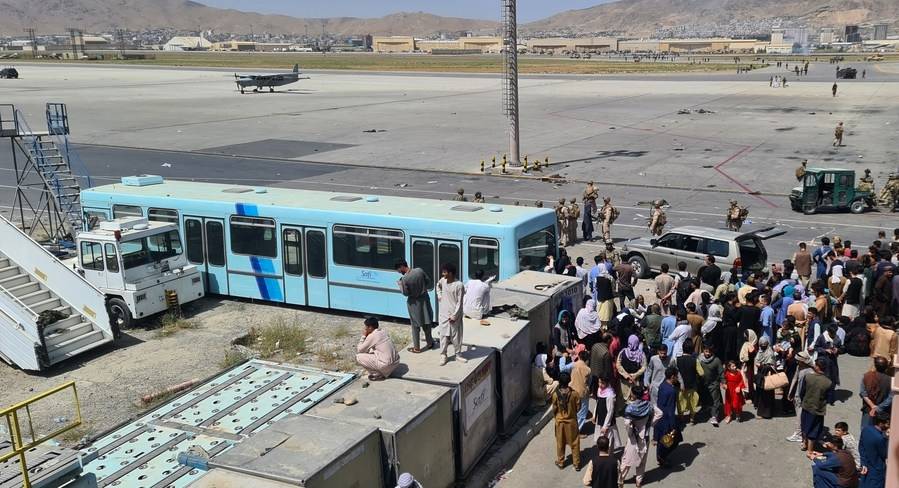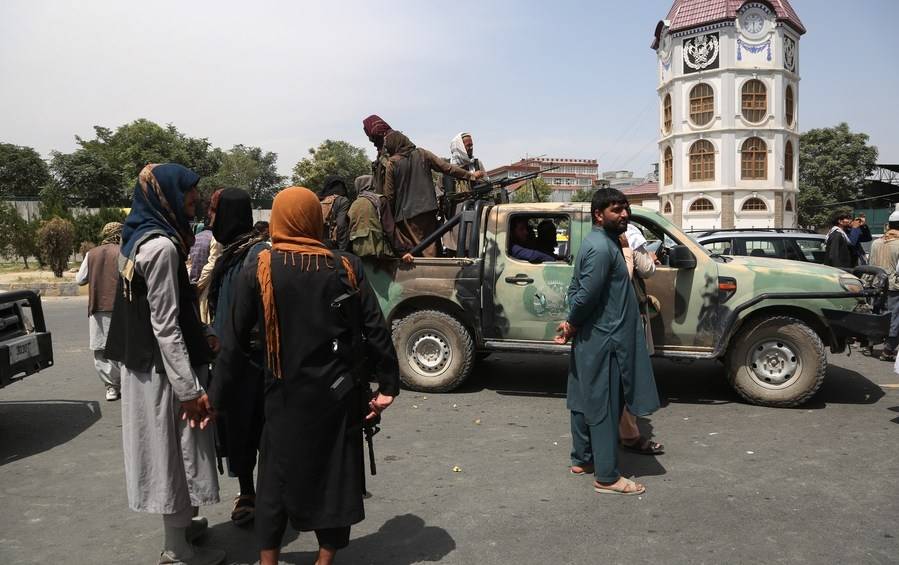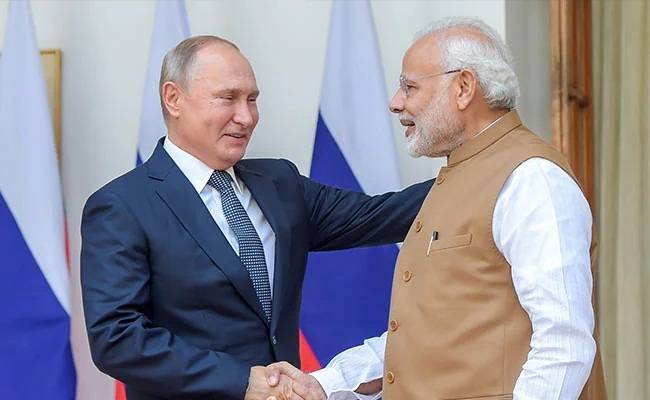Several points of convergence emerged in the dialogue. Russia has been engaging with the Taliban, which overran Kabul on August 15, for a long time….reports Atul Aneja
India has returned to the Afghan cockpit following an eventful conversation between Prime Minister Narendra Modi and Russian President Vladimir Putin on Tuesday.
Several points of convergence emerged in the dialogue. Russia has been engaging with the Taliban, which overran Kabul on August 15, for a long time.
But the two countries decided they will coordinate their position regarding recognition of the new Emirate of Taliban, which would come only if there is a marked change in the behaviour of the Islamist group dominated by ethnic Pashtuns. India has deep misgivings about the Taliban in its earlier avatar after is seized power in Afghanistan in 1996, as the country under its rule became the ground zero for breeding international terrorism.
Consequently, New Delhi and Moscow have established an institutional mechanism of coordination to jointly take a call on the Taliban. Personnel from the foreign ministries and from the national security establishment will marshal this mechanism. “While exchanging opinions on Afghanistan, the parties noted the importance of concerted efforts, which would help establish peace and stability in the country and ensure security in the region in general. They expressed their determination to increase cooperation in opposing the spread of terrorist ideology and the drug threat emanating from Afghan territory. They agreed to establish a two-way channel for permanent consultations on this issue,” says a Kremlin statement on the Modi-Putin dialogue.

It now appears that among the Eurasian heavyweights which are deeply concerned about Afghanistan’s rapidly evolving position, India, Russia and Iran are on the same page.
Iran’s foreign ministry has declared that it was not yet prepared to recognise a Taliban led government in Kabul, though it had been engaging with the militant group for some time, anticipating the eventual exit of the Americans from the region.
When asked on Monday whether Iran would recognize the Taliban’s rule, Iran’s foreign ministry spokesperson Saeed Khatibzadeh said: “We are basically not at that stage right now. We are now at a stage where we must strive to form an all-inclusive government in Afghanistan that reflects all the realities of Afghanistan and the ethnic and popular composition of Afghanistan from different perspectives.”
Iran elaborates on its Afghanistan policy
Iran had activated its diplomacy to engage with all parties and groups of Afghanistan, including the Taliban. Iran is working out a “broader strategy to establish relations with all stakeholders in Afghanistan with the aim of encouraging them to form an all-inclusive government that would ensure and protect the rights of all of Afghanistan’s ethnoreligious groups,” Tehran Times said in a commentary interpreting the spokesperson’s remarks.
Iran had adopted a position of 360-degree engagement despite its known sympathy for the ethnic Tajiks, who share deep cultural bonds with Iran, and antipathy towards the Taliban for historical reasons.

“The Taliban is no friend of Iran; it is widely seen as a culprit in shedding the blood of Iranian diplomats in Mazar-i-Sharif (in 1998), though Iranian officialdom has yet to blame it for the massacre. This may explain why Iranian public opinion holds a gloomy view of the militant group. In fact, many social media users in Iran have largely sympathized with Ahmad Massoud of the Panjshir Valley which became the last beacon of hope for large swaths of the Afghan population to establish a political order with democratic trappings,” wrote Tehran Times.
Yet in order to give room for a diplomatic solution to work, Khatibzadeh “sought to keep a safe distance from Massoud and the Taliban alike”.
(The content is being carried under an arrangement with indianarrative.com)













